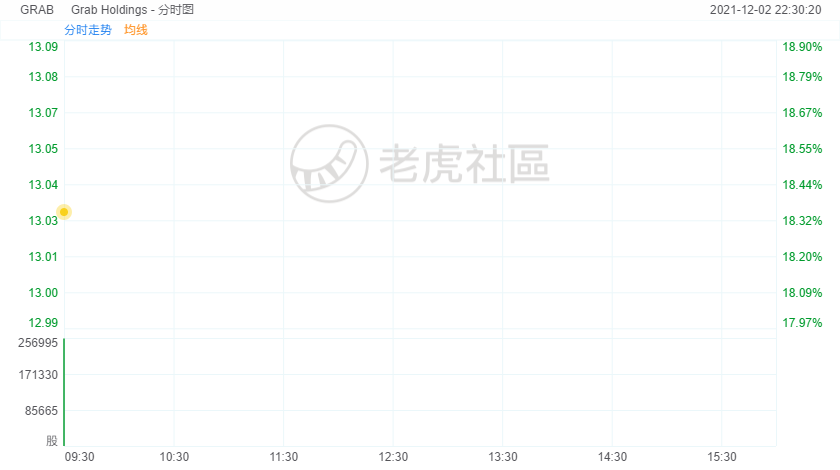Singapore ride-hailing firm Grab spikes 18% on its first day of trading.
Grab, Southeast Asia's biggest ride-hailing and food delivery firm,lists on Nasdaq on Thursday following its $40 billion merger with special-purpose acquisition company (SPAC) Altimeter Growth Corp.
The deal is the world's biggest ever by a blank-check company and the biggest U.S. listing by a Southeast Asian firm.
WHAT IS GRAB?
Founded in 2012, Grab is Southeast Asia's largest startup, valued at just over $16 billion last year. It launched as a Malaysian taxi-hailing service and now calls itself a "superapp" after expanding into food, grocery and parcel delivery and to digital payments, lending and other financial services.
Singapore-headquartered Grab operates across 465 cities in eight countries in the region, counting Indonesia as its biggest. Its venture with Singapore Telecommunications Ltd(STEL.SI)was awarded a digital bank license in Singapore last year.
Grab gained the global spotlight in 2018 when it bought the Southeast Asian business of Uber Technologies Inc(UBER.N)in return for the U.S. ride-hailing company taking a stake in Grab.
With some 8,000 employees, Grab has tech centres in Singapore, Beijing, Seattle, Bengaluru and other places.
WHO'S BACKING GRAB?
Early investors include Japan's SoftBank, China's Didi Chuxing and venture capital firms Vertex Ventures Holdings and GGV Capital.
Grab raised about $12 billion ahead of the listing. Investors range from venture and hedge funds to automobile companies and other ride-hailing firms, and include:
Uber, Booking Holdings Inc, China Investment Corp, Coatue Management, Hillhouse Capital, Hyundai Motor Co, Invesco Ltd, Microsoft Corp, Ping An Capital Co, Toyota Motor Corp, and Yamaha Motor Co..
In the SPAC deal, about three dozen investors came on board including Temasek Holdings, BlackRock, Fidelity International, Abu Dhabi's Mubadala and Malaysia's Permodalan Nasional Bhd and Altimeter Capital.
WHO'S THE COMPETITION?
GoTo Group, formed by the merger of Indonesian ride-hailing and deliveries firm Gojek and local e-commerce leader Tokopedia is Grab's biggest competitor.
Singapore-based Sea Ltd, which has e-commerce, gaming and a digital payments business, and is also muscling into food delivery and financial services in Indonesia. Sea has also won a digital bank license in Singapore.
Grab is likely to increasingly start competing with banks as it expands its financial services.
It also competes with such delivery companies as Foodpanda and Deliveroo PLC.
WHAT ARE GRAB'S FINANCIALS?
Grab's third-quarter revenue fell 9% from a year earlier to $157 million. Its adjusted loss before interest, taxes, depreciation and amortization (EBITDA) widened 66% to $212 million. Gross merchandise value hit a quarterly record of $4 billion.
The delivery business has emerged as the biggest segment as more consumers shifted to online food delivery during the pandemic.
Grab forecasts it will turn profitable on an EBITDA basis in 2023.
WHO ARE ITS KEY EXECUTIVES?
Anthony Tan, 39, is the company's CEO and co-founder.
Fellow co-founder Tan Hooi Ling, 38, runs Grab's operations, including corporate strategy and technology.
Both Tans, unrelated, met at Harvard Business School, where they conceived the idea of the ride-hailing company.
Grab's president, Ming Maa, is a prominent dealmaker from SoftBank, who joined the company in 2016.
Here are some milestones for the Singapore-headquartered company:
2011: Anthony Tan and co-founder Tan Hooi Ling create Grab in a Harvard Business School venture competition plan
2012: Launches as MyTeksi taxi booking service in Malaysia
2013: Expands to the Philippines, Thailand, Singapore as GrabTaxi
April 2014: Announces Series A funding
June 2014: Launches in Indonesia
December 2014: Japan's SoftBank invests $250 million in a funding round
August 2015: Becomes a unicorn after $350 million funding round
December 2015: Announces a strategic partnership with other ride-hailing companies Ola, Didi, and Lyft that competed against Uber
January 2016: Rebrands to Grab from GrabTaxi to reflect expanding services
November 2017: Launches GrabPay payments service for third-party transactions
March 2018: Announces acquisition of Uber's business in Southeast Asia through an all-share deal, Uber becomes a strategic shareholder
May 2018: Pilots GrabFood delivery service
July 2018: Unveils "superapp" strategy that provides a range of services under one platform
March 2019: Reaches valuation of about $14 billion
December 2020: Wins digital full bank license in Singapore in a partnership with Singapore Telecommunications Ltd
April 2021: Agrees to list on Nasdaq through a merger with special-purpose acquisition company Altimeter Growth Corp securing a valuation of nearly $40 billion



